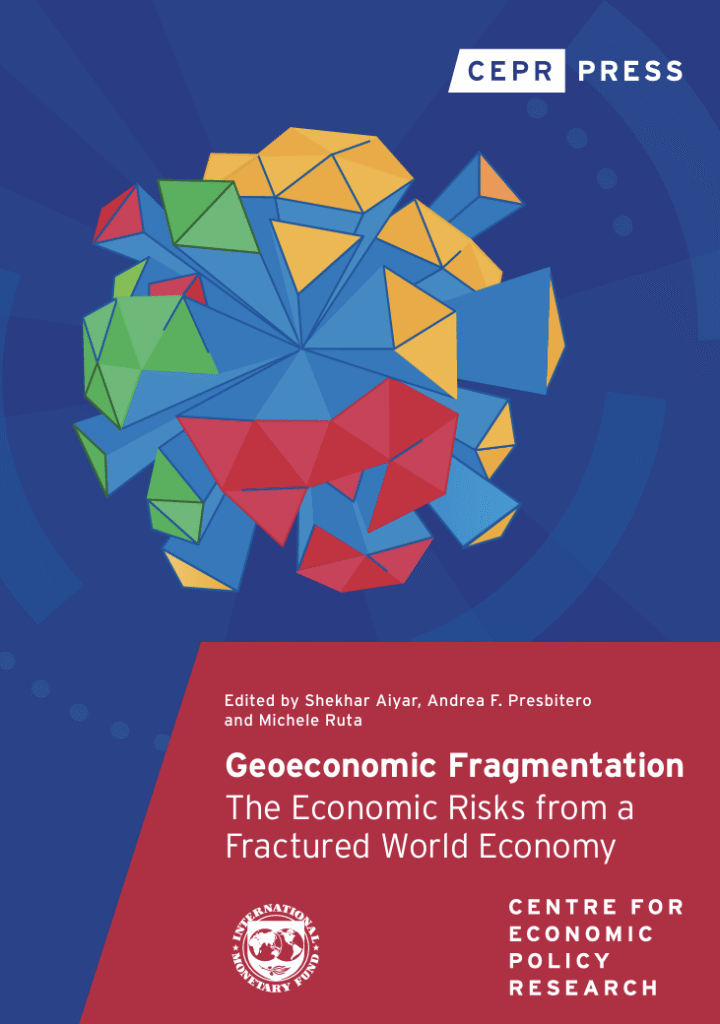Book Chapter
Economic Costs of Friend-shoring
Geoeconomic Fragmentation: The Economic Risks from a Fractured World Economy

Abstract
The nature of international trade has changed significantly since the early 1990s: the liberalisation of cross-border transactions, advances in information and communication technology, reductions in transport costs, and innovations in logistics have given firms greater incentives to break up the production process and locate its various stages across many countries. As a result, global supply chains have become very common, accounting for around a half of global trade in 2020 (World Bank 2020).
The prevalence of global value chains has been underpinned by the well-functioning international trade rule enshrined in the General Agreement on Tariffs and Trade (GATT) and later the WTO, as well as regional agreements. However, geopolitical tensions and disruptions to global value chains – ranging from cyber-threats, the US-China trade war (Fajgelbaum et al. 2022), and the Russian invasion of Ukraine to systemic issues such as the Covid-19 pandemic and the climate crisis – have led policymakers to re-evaluate their approach to globalisation. Many countries are considering ‘friend-shoring’ – trading primarily with countries sharing similar values (such as democratic institutions or maintaining peace) – as a way of minimising exposure to weaponisation of trade and securing access to critical inputs, particularly those required for green transition (Arjona et al. 2023, Attinasi et al. 2023).
In contrast to optimisation under free trade, friend-shoring – by imposing constraints – is likely to be less efficient. But how high is the price that needs to be paid for the alleged insurance benefits brought about by friend-shoring? To shed some light on this question, this chapter assesses the economic costs of friend-shoring, with a focus on broadly defined emerging Europe and European neighbourhood economies. We make three main points. First, we show that, in the medium run, friend-shoring is bad for most economies and generally leads to real output losses globally. Second, only countries that manage to remain non-aligned may see real output gains, but these gains are much smaller than the losses incurred by other countries and not guaranteed. Third, economic costs of friend-shoring are higher than the economic costs of sanctions imposed on Russia after its invasion of Ukraine.
